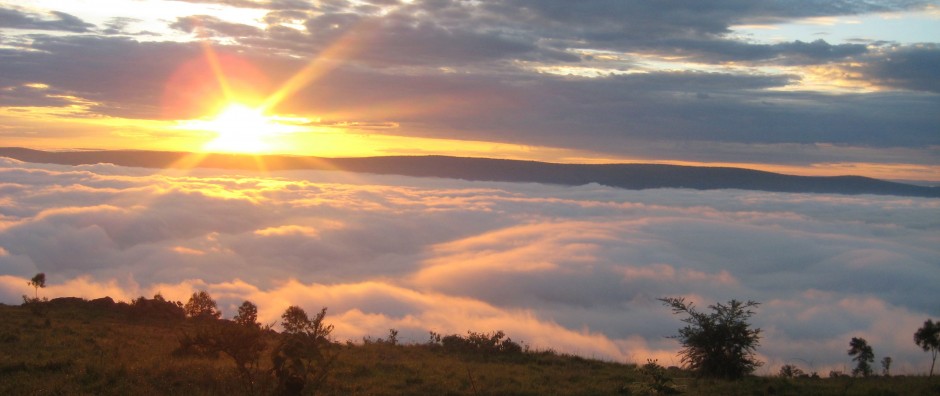If there is anything that a white person one cannot forgot while living in Tanzania it is that he or she is a mzungu. This is word literally means a person who walks in circles, but practically is used by Tanzanians of all walks of life to mean a white person, a foreigner, or someone different.
Everywhere I go, I am met with calls of “mzungu! mzungu!” These calls range from 4 year old children on the side of the road, to middle aged men in the middle of their work. Admittedly, the calls come from different places and have different meanings. The kids, by in large, – I think – are just surprised to see a white person walking or bicycling through their streets, and they shout it with the hopes that this different person will wave or say hello. Also, they seem to want to alert the world to my presence. While they have seen different white people over the course of their lives, they have not seen many, and even if they see me every day for a year I will not be surprised to continue to hear them shout it. They are simply intrigued by difference, and want to acknowledge it. Also, I think many of them hope I will give them money. I never give them money, but I always to try to acknowledge their presence with a wave or greeting in Swahili, which I have noticed often gets me a “shikamoo,” which is a respectful greeting for someone older than you, to which I respond “marahaba,” which acknowledges the sign of respect.
The call sounds much different coming from a middle aged man, and depending on the person I think it has different meanings. Earlier today, for example, I was biking home from school, and this man working on his bike by the side of the road shouted it. I take these shouts as a kind of “hey bro, what’s up,” except that instead of bro they are saying “mzungu!” To these calls, I respond with a casual Swahili greeting like “Mambo,” or, when I want to make it clear that I speak a little Swahili, something a little more detailed. Normally, these responses are taken enthusiastically by the shouter, who answers, and then sometimes responds with another greeting. I think, if I wanted, I could stop what I was doing and spend a few minutes chatting with these people. Others, I think, say “mzungu!” as a kind of joke with whoever they are with, wanting to gauge the response of the mzungu. Normally, my greetings in this case are taken with some surprise and amusement that I have, in fact, responded.
The other place where I hear it consistently is at school. Students will mutter it to one another as I pass, like high schoolers might talk about one of the teachers. I am never sure what they are saying, but based on some inside information I think largely the student body either thinks I am cool (sharobalo), or is somewhat intimidated by me, and mzungu is just their term for saying something about the white teacher. Finally, the teachers will use it when they are talking about me. They all know my name, but I think for them the word mzungu conjures up the idea of a cultural and linguistic outsider. When I shrug my shoulders in confusion after one of them has tried something out on me in Swahili that I am utterly confused by, it is not uncommon for someone to say something about the mzungu in Swahili. Here, I feel it is used with a kind of endearment. The teachers all know I am working on my Swahili, and so when I am confused they not only think that I am learning, but also find it rather funny that I am not fluent yet. Indeed, they often say, “you will be fluent in one month, Swahili is very easy!”
Some white people get very bothered by the label over the course of their time in Tanzania, and while I have not been here particularly long yet (nearly two months in Tanzania, but much less in Ngara), I cannot imagine it will ever bother me that much. I am an outsider here, and that, at its heart, is what mzungu means. While some people are offended to have it continually brought up – to have a constant reminder of their difference – the truth is that I am different, and the physical manifestation of my difference is dramatic in a town that is nearly 100% black. It may not be the greatest way to be acknowledged, but given the enthusiasm with which people shout it and, and the amiable responses I get after initiating greetings, there is a pleasant element to it as well, even if all that is really being acknowledged is that I am different. While I think that I will always get the mzungu call, I have noticed over the past few days that I am also getting a different call – teacher. That one, I have no sense of ambivalence about: teacher, or mwalimu, is a word of great respect in Tanzania.

love love love this. do you mind if i share it with my readers? – marisa
You are welcome to! Just link to the source, would you?